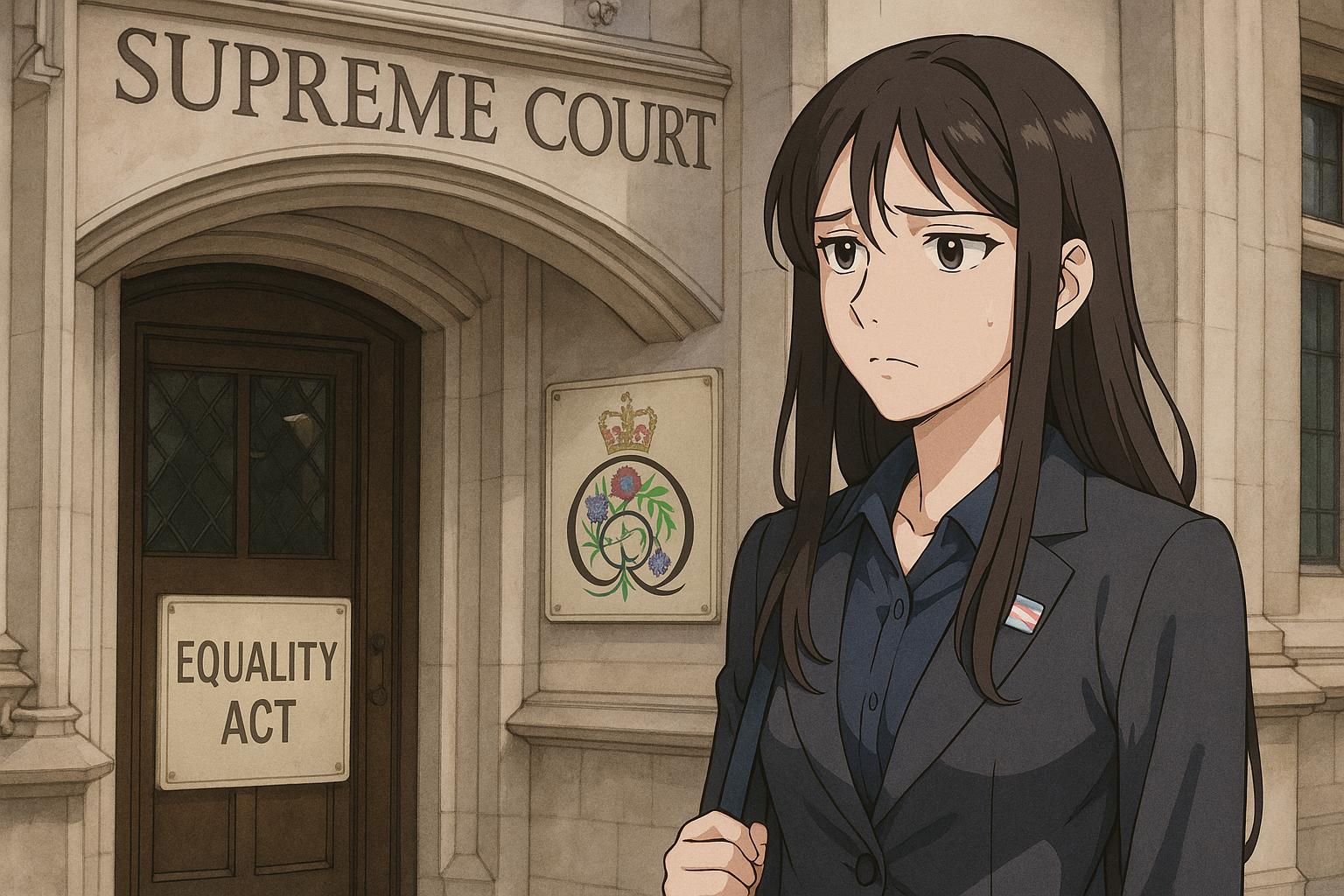The recent ruling by the United Kingdom's Supreme Court marks a significant moment in the ongoing discourse surrounding gender identity and sex. The court has asserted that, under the 2010 Equality Act, the terms "woman," "man," and "sex" are strictly defined as referring to biological sex, thereby excluding transgender women from this designation. This decision was prompted by a case brought forward by an anti-transgender group in Scotland, which sought to challenge the Scottish government's interpretation of gender that included individuals living as women, irrespective of their biological sex. While this ruling aligns the court's interpretation of the law with the views of certain grassroots organisations, including For Women Scotland, it has also ignited profound concerns among LGBTQ advocacy groups regarding potential implications for transgender rights and protections.
Judge Patrick Hodge's landmark ruling stated that while transgender individuals are safeguarded against discrimination under other provisions of the Equality Act, the legal definition of sex now delineates a clear binary framework—man or woman—removing any ambiguity around the inclusion of trans women in women-only spaces such as shelters, hospital wards, or sports facilities. This aspect has alarmed human rights advocates, as it effectively diminishes the inclusion of trans individuals in environments where they might typically seek refuge or support. The ruling has been portrayed as an attempt to balance competing rights but has drawn criticism for potentially exacerbating discrimination against a vulnerable demographic, leaving many trans individuals feeling exposed and uncertain.
The political ramifications of this decision are evident, transcending traditional party lines and polarising opinion across the spectrum. Notably, the Labour Party has adopted a muted response, possibly to avoid alienating voter blocs sensitive to gender issues, while the Conservative government, especially figures like Kemi Badenoch, has embraced the ruling. The general discourse surrounding trans rights in the UK has been marked by increasing tensions, particularly as rights that many thought were secured are now perceived to be in jeopardy. Spearheaded by advocates on both sides, the debate often paints trans individuals as a source of conflict, a narrative that many argue overlooks their lived experiences and needs.
As the implications of the judgment continue to unfold, questions remain regarding its practical enforcement. The Equality and Human Rights Commission has been tasked with providing guidance on implementing the ruling, yet critics argue this lacks sufficient consultation and is fraught with obstacles. The ruling also reawakens discussions around the need to update the Equality Act, which some experts believe could enhance protections and address evolving social understandings of gender. The absence of trans voices in the court's deliberations raises further scrutiny about the representational gaps in discussions that directly impact their rights.
In light of these developments, proponents of transgender rights assert that this ruling could lead to a regressive narrative that reverts society to outdated notions of gender essentialism. The potential repercussions extend beyond legal definitions and touch on broader societal attitudes towards gender identity, especially as legislative measures in the UK appear to reflect a divided populace. Many fear that without proactive measures to safeguard against discrimination, the hard-won rights of the LGBTQ community may experience significant erosion, necessitating a renewed commitment to advocacy and activism.
While the UK Supreme Court maintains that protections for trans individuals will remain intact, the future for these rights hangs delicately in the balance, facing mounting challenges at both social and institutional levels. The ruling illuminates a critical juncture in the fight for LGBTQ equality, underscoring the importance of inclusive conversations that acknowledge and respect the diversity of gender identities while safeguarding the rights of all individuals.
Reference Map:
- Paragraph 1 – [1], [2], [3], [4]
- Paragraph 2 – [1], [5], [6]
- Paragraph 3 – [1], [2], [3], [6]
- Paragraph 4 – [4], [5], [6], [7]
- Paragraph 5 – [1], [5], [6], [7]
Source: Noah Wire Services
